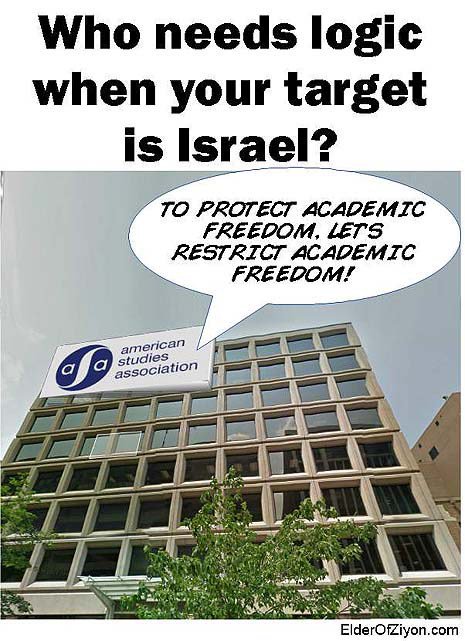Analysts have been more and more alarmed by the US' increasingly untenable position with the Iran deal-that-is-not-a-deal.
Another major blow to the so-called agreement is happening this week.. The media has tired o fthis story but the worst predictions about the deal are all coming true.
From an email distributed to journalists by Omri Ceren from The Israel Project, an organization that works with journalists on Middle East issues:
Earlier this week Secretary Kerry held a private meeting with Iranian FM Zarif and announced afterward that on Friday - so tomorrow - he and Zarif will "sort of solidify" new sanctions relief for Iran [a]. The meeting came a few weeks after the Iranians began demanding access to the U.S. dollar and threatening to abandon the nuclear deal if they didn't get it. Kerry suggested that the concession will be sold publicly as something the Iranians were entitled to all along under the nuclear deal: "making sure that the JCPOA... is implemented in exactly the way that it was meant to be and that all the parties... get the benefits that they are supposed to get."
Kerry's spin makes good political sense. There are two explanations for giving Iran dollar access: either the nuclear deal is still open for negotiation or the dollar concession was there all along. For the last few weeks many people assumed the administration would claim the deal is still open, and the administration got absolutely hammered in that context [b][c][d][e]. So now it looks like Kerry will claim that actually the nuclear deal entitled the Iranians to dollars the whole the time.
This new pretext - that the nuclear deal entitled Iran to dollar access all along - may be more politically expedient than acknowledging that Iran is continuously coercing more concessions from the administration. But it still suffers from a number of flaws.
1st, as a matter of substance, it's false. Iran was cut off from the U.S. financial full range of its illicit activities, not just nuclear: money laundering, terrorism, ballistic missile development, nuclear work, etc. The official entry in the Federal Register from Treasury in 2008, explaining the cut off, was explicit: "The reasons OFAC is revoking this authorization include the need to further protect the U.S. financial system from the threat of illicit finance posed by Iran and its banks.... the Financial Action Task Force... in particular emphasized Iran’s lack of effort in addressing the risk of terrorist financing" [f].
2nd, as a matter of politics, it implies the administration deliberately hid the ball from Congress on concessions made to Iran under the deal. Administration officials assured Congress throughout the fall that the dollar prohibition would remain would remain in place after the deal, partly because it's critical to U.S. leverage over Iran and partly because those sanctions were a response to non-nuclear aggression, and so Iran wasn’t entitled to relief from them anyway [g][h].
3rd, as a matter of policy, it kneecaps any possibility of reimpoising financial pressure on Iran for at least the next decade. Giving Iran access to the dollar for any reason neuters financial pressure for as long as that access remains in place. Under normal circumstances the U.S. can respond to Iranian non-nuclear aggression directly, by restricting dollar access and therefore Iran's financing options, and indirectly, by using dollar restrictions to impose consequences on Iran's economy more broadly. Those options go away as long as Iran has access to the dollar for any reason.
But Kerry’s politically expedient pretext - that Iran was always entitled to dollar access as part of the deal - locks in that access for the whole deal, because it makes it part of the deal. Eric Lorber - a senior associate at the Financial Integrity Network and an advisor at the Foundation for Defense of Democracies - unpacked all this weeks ago [i].
Let’s say that we give Iran access to U.S. dollars... and six months down the road Iran engages in a wide range of missile tests. And so we want to pull their access to U.S. dollars as a way to punish them for these activities and change their behavior. If we do that, Iran is going to say that the dollar access was granted as part of the nuclear agreement, as evidenced by the fact that the U.S., when it was saying that it needed to fulfill its obligations under the JCPOA, provided this general license. So Iran will basically say that if the United States tries to cut this dollarized access off, that’s a violation of the JCPOA, and they will walk away, or they’ll take countermeasures, et cetera.
The Iranians will leverage Kerry's claim that the deal provides dollar access to prohibit any future prohibitions on dollars, even and especially when U.S. policymakers would need those tools. Kerry's politically expedient spin for the concession - above and beyond the concession itself - will potentially disable U.S. financial pressure on Iran for at least a decade.
We have lots of ideas, but we need more resources to be even more effective. Please donate today to help get the message out and to help defend Israel.
 We have lots of ideas, but we need more resources to be even more effective. Please donate today to help get the message out and to help defend Israel.
We have lots of ideas, but we need more resources to be even more effective. Please donate today to help get the message out and to help defend Israel.

 Elder of Ziyon
Elder of Ziyon


































